I have wanted to love and adore Wes Anderson’s warm, primary color laden, fairy-tales of likeable, rootless eccentrics caught up in P.G.-Wodehouse-ian plots for a very long time. I have not loved nor adored anything at all by Anderson since Rushmore and have most frequently been disappointed by his films, and left feeling emotionally confused about whether it is my own ill-gained smug middle-agedness that prevents me from loving and adoring The Royal Tenenbaums as much as my friends seem to have, and if per chance it is my own faithlessness that accounts for me doing things like breaking my Moonrise Kingdom date with that indie girl I met at Recovery Room. (I was the one to break it and not her I’m sure of it.) 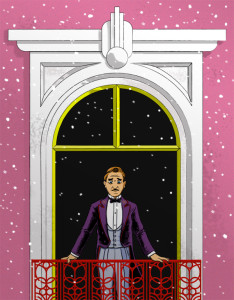
I think the thing is that while Anderson’s films are indeed those kind of fabled and elusive, brightly colored, neurotically wholesome, uncanny tales of marginal wonder that we all pine for now and again (or at least “the stuff of” such tales), that his movies mostly stink. The resulting letdown of popping some corn and settling in for a movie with the promise of a title like Moonrise Kingdom replete with the assurances of a summer camp setting and a Bill Murray led cast of Wonder-Years-reject-looking juveniles only to not find the kind of hilarious, cathartic, cartoony wonderland narrative I wanted has had me nearly boycotting Anderson and his movies and abruptly steering away from any discussion of his films on numerous occasions.
While not quite being A Christmas Story on acid like I had hoped that by now all filmmaking would have evolved towards, Grand Budapest Hotel tickled me in some of my favorite places and tastefully indulged fetishes like mid-century nostalgia, unsung literacy, curiosities, secret codes and documents, boutique bakery romance, art heists, and of course the coup de ta of all the “extra butter, please” obsessions: an old European hotel on a precipice in Hungary, the kind where very interesting people winter, where smoking is strongly encouraged, where Vampire twins try to hideout from each other, and where prestigiously lonely men practice stage illusions, or ventriloquism and contemplate suicide in front of cream colored vanities. Yes, Peter Griffin…it’s just that very kind of grand Budapest hotel…the splendorous and familiar kind that you know and care for oh so very, very dearly. It is most certainly the kind of venue where an old leathery smell invigorates and renews one’s leisure aspirations– even in spots where there is no actual leather present, and where it is highly likely that heroes, legends and spies have littered the institution with rare, hidden inscriptions, perhaps even treasure maps. Look high and low, friend, and you may very well find a secret passage into a chamber containing a forgotten Tesla transporter built by the Nazis or a bizarre cult ritual , and at the very least, when you find an old Zippo lighter at the bar you can be confident that it was left behind by a movie star or else by the guy who wrote all those books about bohemian living that you once claimed to have read. 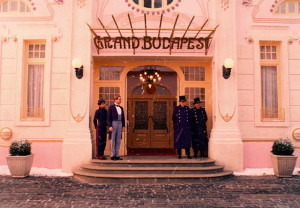
Aside from the charming and grandiose facade, Grand Budapest Hotel is also a finely crafted piece of cinema, a pleasure to look at but not merely just that. It is a movie undeniably packed with wit, amusements and charm if not overwhelming hilarity. Anderson achieves a previously unattained narrative coherence and watchable pace that allowed me to spend less time inwardly justifying lackluster story-telling by trying to convince myself that the directors quirk-pop styling and cheeky idioms were substance enough on their own (a common symptom of my previous trips to Anderson-ville); that is to say, I really liked this movie squarely as a movie.
Speaking of squares, ahem, the very square-centric photographic framing motif that persists through Grand Budapest Hotel reminds me of classic films that were made in the part of the world that GBH takes place in, Polish or Czechoslovakian-ish with a hint of pre-war German expressionism. Kids love this kind of thing. 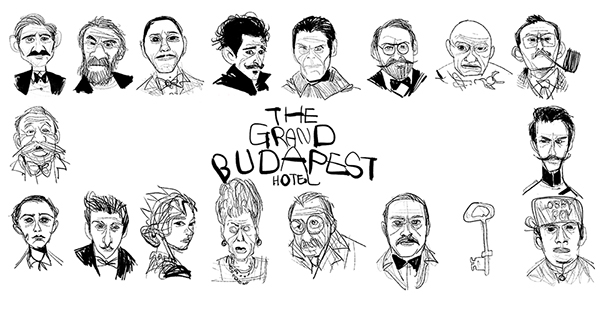
Certain parts of the homage at work in GBH don’t quite get the lift they need to entirely transcend into a brand new from. The comedy itself is a dapper refreshment but not full-scale reinvention of all things vintage screwball, wacky, zany (and all of that!) but I feel that in a way these fun ideas seem somewhat muted, under-confident in their staging and sequencing, perhaps even mildly self-conscious in their performance. The daft Peter Sellers-esque funny business superficially satisfies the viewer’s long-forgotten wish that comedy movies were once again timeless, and laugh-out-loud funny in a way that they haven’t often been in recent memory but simultaneously I felt vaguely unconvinced and the same skepticism and disbelief that such modern comedic heights are at all possible that I came into GBH with still seemed to linger after the credits had rolled.
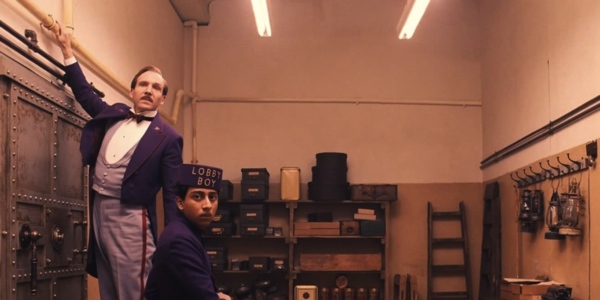 The fine acting by Ralph Fiennes is entertaining and his character gets close to being smarmy but ultimately remains wholly sympathetic throughout the movie despite flourishes of moral turpitude and a kind of cartoon vanity and obtusely unaware insensitivity. 17-year-old Tony Revolori is likeable as a likeable rookie bellman, and he and Fiennes have a natural chemistry on screen that recalls Max Fischer and Herman Blume from Rushmore. There is a super famous cast here in general, and William Dafoe’s wickedly no-good henchman character, Jopling, is terrific fun to root against and laugh at.
The fine acting by Ralph Fiennes is entertaining and his character gets close to being smarmy but ultimately remains wholly sympathetic throughout the movie despite flourishes of moral turpitude and a kind of cartoon vanity and obtusely unaware insensitivity. 17-year-old Tony Revolori is likeable as a likeable rookie bellman, and he and Fiennes have a natural chemistry on screen that recalls Max Fischer and Herman Blume from Rushmore. There is a super famous cast here in general, and William Dafoe’s wickedly no-good henchman character, Jopling, is terrific fun to root against and laugh at. 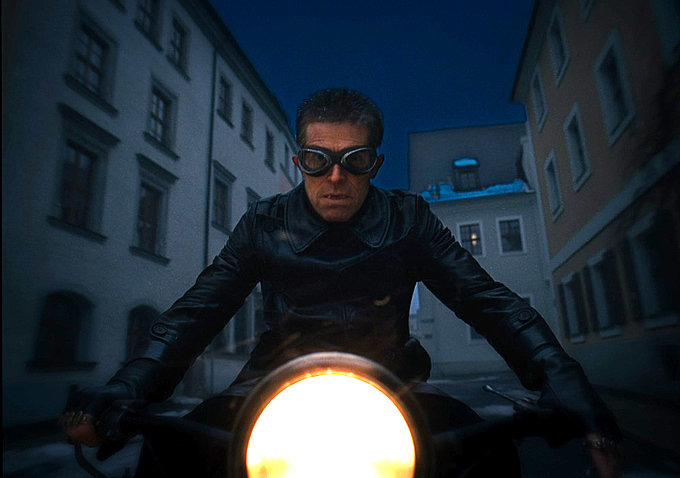
The Waldorf Salad of it all here is that I liked Grand Budapest Hotel immensely. In some ways it represents everything I could ever want in a film with it’s richly rendered settings, czar-of-Amsterdam-style themes, and old-fashioned comedic sensibilities. It makes good on the directors past suggestions of worldly but somehow wholesome, artful and eccentric funny filmmaking by presenting an artfully eccentric and humorous story that involves more novelties, gags and treachery then a backpage of Boys Life Magazine. The superlative plainness of the narrative gets damn near poignant when paired with Anderson’s signature cinematic flair and well-informed cheek in a way that makes for a movie that’s chock full of the kinds of indie-pleasures we’ve already experienced in his previous films, but also, and perhaps for the first time I think, this Wes Anderson film is highly, highly accessible. It is a largely seamless madcap frenzy that is effective both in it’s ambitious aesthetic aims, and competent in sustaining a plot trajectory that happily feels more like the oft maligned but more frequently watched studio-formula comedies Hollywood pumps out every year and less like a sentimental, art-house “I-think-it’s-funny” headscratcher . After viewing GBH I am happy to report that I am now actually anticipating any possible new narratives directed by Anderson that are similarly equal parts fun-to-look-at and fun-to-watch, and that use the overall technical achievement found here as a starting point, perhaps for a similarly crafted affair that more completely fulfills the directors rather grand vision.



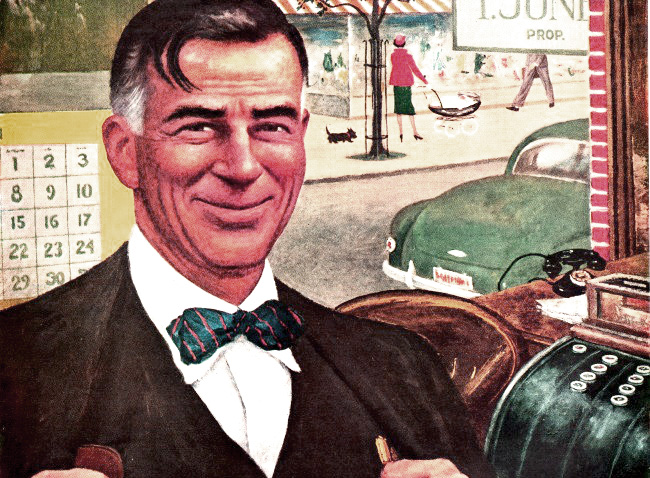
Insightful and entertaining review that will motivate people to watch that might otherwise by-passed this beautifully filmed movie – fans of “Amelie” will appreciate the cinematography.